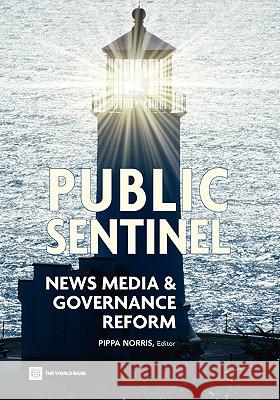Public Sentinel: News Media and Governance Reform » książka
Public Sentinel: News Media and Governance Reform
ISBN-13: 9780821382004 / Angielski / Miękka / 2009 / 442 str.
What are the ideal roles the mass media should play as an institution to strengthen democratic governance and thus bolster human development? Under what conditions do media systems succeed or fail to meet these objectives? And what strategic reforms would close the gap between the democratic promise and performance of media systems? Working within the notion of the democratic public sphere, 'Public Sentinel: News Media and Governance Reform' emphasizes the institutional or collective roles of the news media as watchdogs over the powerful, as agenda setters calling attention to social needs in natural and human-caused disasters and humanitarian crises, and as gatekeepers incorporating a diverse and balanced range of political perspectives and social actors. Each is vital to making democratic governance work in an effective, transparent, inclusive, and accountable manner. The capacity of media systems--and thus individual reporters embedded within those institutions--to fulfill these roles is constrained by the broader context of the journalistic profession, the market, and ultimately the state. Successive chapters apply these arguments to countries and regions worldwide. This study brought together a wide range of international experts under the auspices of the Communication for Governance and Accountability Program (CommGAP) at the World Bank and the Joan Shorenstein Center on the Press, Politics and Public Policy at Harvard University. The book is designed for policy makers and media professionals working within the international development community, national governments, and grassroots organizations, and for journalists, democratic activists, and scholars engaged in understanding mass communications, democratic governance, and development.











